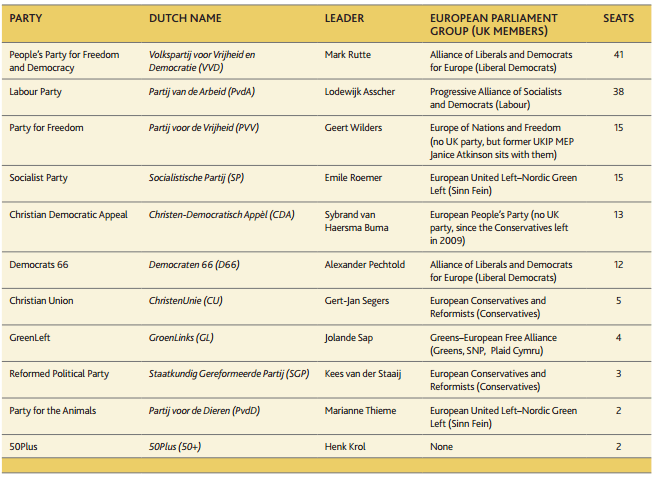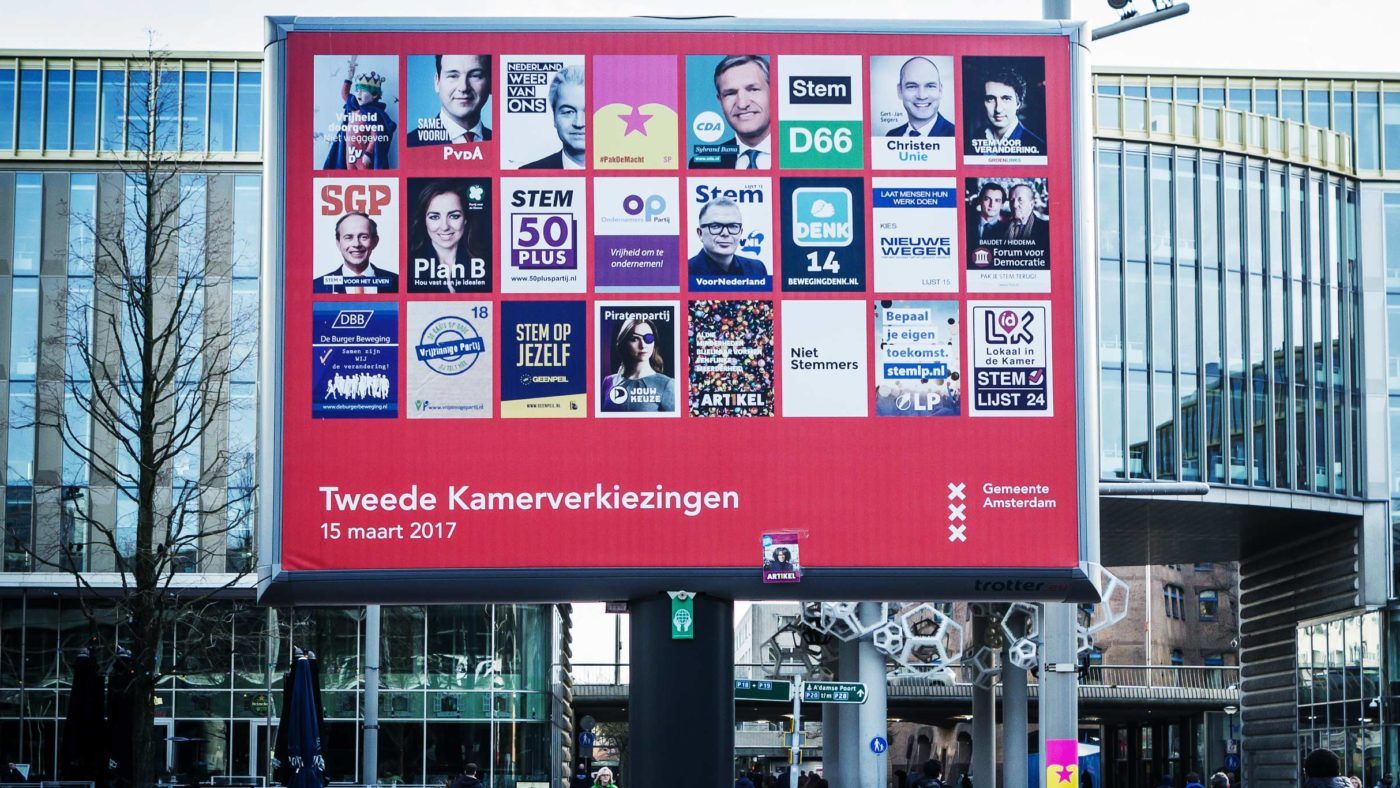Today is election day in the Netherlands. Polling closes at 9 tonight, counting begins immediately and by Thursday morning we will know how the seats in the 150-member Lower House (Tweede Kamer, literally Second Chamber) have been allocated.
A great deal has been written about the election – the vast majority of it focused on Geert Wilders and his populist Freedom Party – but here are some pointers ahead of the results about what to expect once the polls close.
All eyes will turn to the King
Once the seats have been allocated, King Willem-Alexander will meet the leaders of the political parties, as well as the presidents of the Lower and Upper Houses and the State Advisory Body, to discuss the results. He will then appoint a veteran politician (an informateur), typically from the largest party, to seek a coalition of parties and barter election pledges.
If the informateur is successful, they return to the monarch who then appoints the leader of the largest party in the coalition as the formateur, a prospective prime minister who resolves the remaining coalition issues and the allocation of ministerial portfolios. The monarch then formally invites the formateur to form a government and appoints the ministers by royal decree, who then resign from parliament due to separation of powers rules.
Don’t expect a new government by the weekend
This is not a quick process, and can take a number of months. The last general election was held on 12th September 2012; the new government wasn’t appointed until almost nine weeks later, on 5th November. It took over four months to appoint a cabinet after the 2010 election, and in 1977 it took seven.
Expect another coalition
The Netherlands has had a multi-party system and coalition governments since the introduction of proportional representation in 1917. No party has ever achieved a parliamentary majority. To do so, a single party would need to secure 76 seats.
The Christian Democrats won the largest number of seats ever by a single party in 1986 and 1989, winning 54 out of 150 in both years. Don’t expect any party to receive anything like that number of seats this time around.
It will be a historically large coalition
Two political factors heavily restrict the possibilities for workable coalitions, if recent polling data turns out to be an accurate forecast of the election results.
The first is that most parties have ruled out joining a coalition with Geert Wilders’ Freedom Party. The second is that the Socialists have ruled out joining a coalition with Mark Rutte’s People’s Party (centre-right, liberal and the largest party in the current coalition).
Without the Freedom Party, a coalition is likely to have to involve at least four parties to command a majority (People’s Party, Christian Democrats, Democrats 66 and the Greens). Ruling out the People’s Party too would require at least five parties (Christian Democrats, Democrats 66, the Greens, the Socialists and Labour). Neither outcome bodes well for strong and stable government.
Table 1: Current composition of the Lower House

Data: Legatum Institute
Winning the most seats does not guarantee a place in Government
In recent days, the governing People’s Party has inched ahead of the Freedom Party, but following Brexit and Trump, we shouldn’t write off Wilders topping the polls. All the major parties have ruled out working with Wilders, but if he does come out on top, his won’t be the first winning party to sit in Opposition. In 1977, the Labour party came out of the elections triumphant, but the numbers two and three formed a coalition. That said…
There could be popular pressure for Wilders to be given a place in Government if he wins
A survey by respected pollster Maurice de Hond in November showed that 60 per cent of Dutch voters think that the Freedom Party needs to be welcomed in government if it tops the polls. This suggests that keeping Wilders out may not be popular. Don’t dismiss the idea of parties dropping their previous opposition to working with Wilders.
Don’t rule out a coalition involving the People’s Party and Freedom Party
Mark Rutte and Geert Wilders have worked together before. The People’s Party formed a coalition with the Christian Democrats after the 2010 election, with the Freedom Party supporting them in a confidence and supply agreement. They had won 31, 21 and 24 seats respectively, making a coalition total of 76 – just enough for a majority in the 150-seat Lower House.
The coalition collapsed in March 2012, leading to elections later that year, when the People’s Party won its current 41 seats while the Freedom Party and the Christian Democrats fell back to 15 and 13 seats. The collapse was prompted when Geert Wilders rejected the austerity measures designed to prevent the budget from breaching eurozone rules.
Expect the traditional parties of government to lose seats
The populist parties are set to be the winners in this election, with the traditional parties of government losing out. According to the latest seat projections, the five parties which have previously been members of cabinets are projected to fall from their haul of 109 seats in 2012 to approximately 80 seats.
Meanwhile, the parties which have never been in a cabinet are expected to increase their number of seats from 41 to 70. The Freedom Party is one of several populist parties in the Netherlands, on both the right (Democratic Forum and For the Netherlands) and left (Greens and the Socialists).
A brief guide to the Dutch election was published this week by the Legatum Institute.


